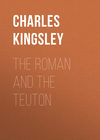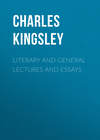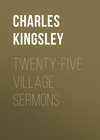Czytaj książkę: «At Last: A Christmas in the West Indies», strona 9
Very different from the spider monkey in temper is her cousin Jack, who sits, sullen and unrepentant, at the end of a long chain, having an ugly liking for the calves of passers-by, and ugly teeth to employ on them. Sad at heart he is, and testifies his sadness sometimes by standing bolt upright, with his long arms in postures oratorio, almost prophetic, or, when duly pitied and moaned to, lying down on his side, covering his hairy eyes with one hairy arm, and weeping and sobbing bitterly. He seems, speaking scientifically, to be some sort of Mycetes or Howler, from the flat globular throat, which indicates the great development of the hyoid bone; but, happily for the sleep of the neighbourhood, he never utters in captivity any sound beyond a chuckle; and he is supposed, by some here, from his burly thick-set figure, vast breadth between the ears, short neck, and general cast of countenance, to have been, in a prior state of existence, a man and a brother—and that by no means of negro blood—who has gained, in this his purgatorial stage of existence, nothing save a well-earned tail. At all events, more than one of us was impressed, at the first sight, with the conviction that we had seen him before.
Poor Jack! and it is come to this: and all from the indulgence of his five senses, plus ‘the sixth sense of vanity.’ His only recreation save eating is being led about by the mulatto turnkey, the one human being with whom he, dimly understanding what is fit for him, will at all consort; and having wild pines thrown down to him from the Poui tree above by the spider monkey, whose gambols he watches with pardonable envy. Like the great Mr. Barry Lyndon (the acutest sketch of human nature dear Thackeray ever made), he cannot understand why the world is so unjust and foolish as to have taken a prejudice against him. After all, he is nothing but a strong nasty brute; and his only reason for being here is that he is a new and undescribed species, never seen before, and, it is to be hoped, never to be seen again.
In a cage near by (for there is quite a little menagerie here) are three small Sapajous, 57 two of which belong to the island; as abject and selfish as monkeys usually are, and as uninteresting; save for the plain signs which they give of being actuated by more than instinct,—by a ‘reasoning’ power exactly like in kind, though not equal in degree, to that of man. If, as people are now too much induced to believe, the brain makes the man, and not some higher Reason connected intimately with the Moral Sense, which will endure after the brain has turned to dust; if to foresee consequences from experience, and to adapt means to ends, be the highest efforts of the intellect: then who can deny that the Sapajou proves himself a man and a brother, plus a tail, when he puts out a lighted cigar-end before he chews it, by dipping it into the water-pan; and that he may, therefore, by long and steady calculations about the conveniences of virtue and inconveniences of vice, gradually cure himself and his children of those evil passions which are defined as ‘the works of the flesh,’ and rise to the supremest heights of justice, benevolence, and purity? We, who have been brought up in an older, and as we were taught to think, a more rational creed, may not be able yet to allow our imaginations so daringly hopeful a range: but the world travels fast, and seems travelling on into some such theory just now; leaving behind, as antiquated bigots, those who dare still to believe in the eternal and immutable essence of Goodness, and in the divine origin of man, created in the likeness of God, that he might be perfect even as his Father in heaven is perfect.
But to return to the animals. The cage next to the monkeys holds a more pleasant beast; a Toucan out of the primeval forest, as gorgeous in colour as he is ridiculous in shape. His general plumage is black, set off by a snow-white gorget fringed with crimson; crimson and green tail coverts, and a crimson and green beak, with blue cere about his face and throat. His enormous and weak bill seems made for the purpose of swallowing bananas whole; how he feeds himself with it in the forest it is difficult to guess: and when he hops up and down on his great clattering feet—two toes turned forward, and two back—twisting head and beak right and left (for he cannot see well straight before him) to see whence the bananas are coming; or when again, after gorging a couple, he sits gulping and winking, digesting them in serene satisfaction, he is as good a specimen as can be seen of the ludicrous—dare I say the intentionally ludicrous?—element in nature.
Next to him is a Kinkajou; 58 a beautiful little furry bear—or racoon—who has found it necessary for his welfare in this world of trees to grow a long prehensile tail, as the monkeys of the New World have done. He sleeps by day; save when woke up to eat a banana, or to scoop the inside out of an egg with his long lithe tongue: but by night he remembers his forest-life, and performs strange dances by the hour together, availing himself not only of his tail, which he uses just as the spider monkey does, but of his hind feet, which he can turn completely round at will, till the claws point forward like those of a bat. But with him, too, the tail is the sheet-anchor, by which he can hold on, and bring all his four feet to bear on his food. So it is with the little Ant-eater, 59 who must needs climb here to feed on the tree ants. So it is, too, with the Tree Porcupine, 60 or Coendou, who (in strange contrast to the well-known classic Porcupine of the rocks of Southern Europe) climbs trees after leaves, and swings about like the monkeys. For the life of animals in the primeval forest is, as one glance would show you, principally arboreal. The flowers, the birds, the insects, are all a hundred feet over your head as you walk along in the all but lifeless shade; and half an hour therein would make you feel how true was Mr. Wallace’s simile—that a walk in the tropic forest was like one in an empty cathedral while the service was being celebrated upon the roof.
In the next two cages, however, are animals who need no prehensile tails; for they are cats, furnished with those far more useful and potent engines, retractile claws; a form of beast at which the thoughtful man will never look without wonder; so unique, so strange, and yet as perfect, that it suits every circumstance of every clime; as does that equally unique form the dragon-fly. We found the dragon-flies here, to our surprise, exactly similar to, and as abundant as, the dragon-flies at home, and remembering that there were dragon-flies of exactly the same type ages and ages ago, in the days of the Œningen and Solenhofen slates, said—Here is indeed a perfect work of God, which, as far as man can see, has needed no improvement (if such an expression be allowable) throughout epochs in which the whole shape of continents and seas, and the whole climate of the planet, has changed again and again. The cats are: an ocelot, a beautiful spotted and striped fiend, who hisses like a snake; a young jaguar, a clumsy, happy kitten, about as big as a pug dog, with a puny kitten’s tail, who plays with the spider monkey, and only shows by the fast-increasing bulk of his square lumbering head, that in six months he will be ready to eat the monkey, and in twelve to eat the keeper.
There are strange birds, too. One, whom you may see in the Zoological Gardens, like a plover with a straight beak and bittern’s plumage, from ‘The Main,’ whose business is to walk about the table at meals uttering sad metallic noises and catching flies. His name is Sun-bird, 61 ‘Sun-fowlo’ of the Surinam Negroes, according to dear old Stedman, ‘because, when it extends its wings, which it often does, there appears on the interior part of each wing a most beautiful representation of the sun. This bird,’ he continues very truly, ‘might be styled the perpetual motion, its body making a continual movement, and its tail keeping time like the pendulum of a clock.’ 62 A game-bird, olive, with a bare red throat, also from The Main, called a Chacaracha, 63 who is impudently brave, and considers the house his own; and a great black Curassow, 64 also from The Main, who patronises the turkeys and guinea-fowl; stalks in dignity before them; and when they do not obey, enforces his authority by pecking them to death. There is thus plenty of amusement here, and instruction too, for those to whom the ways of dumb animals during life are more interesting than their stuffed skins after death.
But there is the signal-gun, announcing the arrival of the Mail from home. And till it departs again there will be no time to add to this hasty, but not unfaithful, sketch of first impressions in a tropic island.
CHAPTER VI: MONOS
Early in January, I started with my host and his little suite on an expedition to the islands of the Bocas. Our object was twofold: to see tropical coast scenery, and to get, if possible, some Guacharo birds (pronounced Huáchӑro), of whom more hereafter. Our chance of getting them depended on the sea being calm outside the Bocas, as well as inside. The calm inside was no proof of the calm out. Port of Spain is under the lee of the mountains; and the surf might be thundering along the northern shore, tearing out stone after stone from the soft cliffs, and shrouding all the distant points in salt haze, though the gulf along which we were rowing was perfectly smooth, and the shipping and the mangrove scrub and the coco-palms hung double, reflected as in a mirror, not of glass but of mud; and on the swamps of the Caroni the malarious fog hung motionless in long straight lines, waiting for the first blaze of sunrise to sublime it and its invisible poisons into the upper air, where it would be swept off, harmless, by the trade-wind which rushed along half a mile above our heads.
So away we rowed, or rather were rowed by four stalwart Negroes, along the northern shore of the gulf, while the sun leapt up straight astern, and made the awning, or rather the curtains of the awning, needful enough. For the perpendicular rays of the sun in the Tropics are not so much dreaded as the horizontal ones, which strike on the forehead, or, still more dangerous, on the back of the head; and in the West Indies, as in the United States, the early morning and the latter part of the afternoon are the times for sunstrokes. Some sort of shade for the back of the head is necessary for an European, unless (which is not altogether to be recommended) he adopts the La Platan fashion of wearing the natural, and therefore surest, sunshade of his own hair hanging down to his shoulders after the manner of our old cavaliers.
The first islands which we made—The Five Islands, as they are called—are curious enough. Isolated remnants of limestone, the biggest perhaps one hundred yards long by one hundred feet high, channelled and honeycombed into strange shapes by rain and waves they are covered—that at least on which we landed—almost exclusively by Matapalos, which seem to have stranded the original trees and established themselves in every cranny of the rocks, sending out arms, legs, fingers, ropes, pillars, and what not, of live holdfasts over every rock and over each other till little but the ubiquitous Seguine 65 and Pinguins 66 find room or sustenance among them. The island on which we landed is used, from time to time, as a depôt for coolie immigrants when first landed. There they remain to rest after the voyage till they can be apportioned by the Government officers to the estates which need them. Of this admirable system of satisfying the great need of the West Indies, free labourers, I may be allowed to say a little here.
‘Immigrants’ are brought over from Hindostan at the expense of the colony. The Indian Government jealously watches the emigration, and through agents of its own rigidly tests the bona-fide ‘voluntary’ character of the engagement. That they are well treated on the voyage is sufficiently proved, that on 2264 souls imported last year the death-rate during the voyage was only 2.7 per cent, although cholera attacked the crew of one of the ships before it left the Hooghly. During the last three years ships with over 300 emigrants have arrived several times in Trinidad without a single death. On their arrival in Trinidad, those who are sick are sent at once to the hospital; those unfit for immediate labour are sent to the depot. The healthy are ‘indentured’—in plain English, apprenticed—for five years, and distributed among the estates which have applied for them. Husbands and wives are not allowed to be separated, nor are children under fifteen parted from their parents or natural protectors. They are expected by the law to work for 280 days in the year, nine hours a day; and receive the same wages as the free labourers: but for this system task-work is by consent universally substituted; and (as in the case of an English apprentice) the law, by various provisions, at once punishes them for wilful idleness, and protects them from tyranny or fraud on the part of their employers. Till the last two years the newcomers received their wages entirely in money. But it was found better to give them for the first year (and now for the two first years) part payment in daily rations: a pound of rice, four ounces of dholl (a kind of pea), an ounce of coconut oil or ghee, and two ounces of sugar to each adult; and half the same to each child between five and ten years old.
This plan has been found necessary, in order to protect the Coolies both from themselves and from each other. They themselves prefer receiving the whole of their wages in cash. With that fondness for mere hard money which marks a half-educated Oriental, they will, as a rule, hoard their wages; and stint themselves of food, injuring their powers of work, and even endangering their own lives; as is proved by the broad fact that the death-rate among them has much decreased, especially during the first year of residence, since the plan of giving them rations has been at work. The newcomers need, too, protection from their own countrymen. Old Coolies who have served their time and saved money find it convenient to turn rice-sellers or money-lenders. They have powerful connections on many estates; they first advance money or luxuries to a newcomer, and when he is once entrapped, they sell him the necessaries of life at famine prices. Thus the practical effect of rations has been to lessen the number of those little roadside shops, which were a curse to Trinidad, and are still a curse to the English workman. Moreover—for all men are not perfect, even in Trinidad—the Coolie required protection, in certain cases, against a covetous and short-sighted employer, who might fancy it to be his interest to let the man idle during his first year, while weak, and so save up an arrear of ‘lost days’ to be added at the end of the five years, when he was a strong skilled labourer. An employer will have, of course, far less temptation to do this, while, as now, he is bound to feed the Coolie for the first two years. Meanwhile, be it remembered, the very fact that such a policy was tempting, goes to prove that the average Coolie grew, during his five years’ apprenticeship, a stronger, and not a weaker, man.
There is thorough provision—as far as the law can provide—for the Coolies in case of sickness. No estate is allowed to employ indentured Coolies, which has not a duly ‘certified’ hospital, capable of holding one-tenth at least of the Coolies on the estate, with an allowance of 800 cubic feet to each person; and these hospitals are under the care of district medical visitors, appointed by the Governor, and under the inspection (as are the labour-books, indeed every document and arrangement connected with the Coolies) of the Agent-General of Immigrants or his deputies. One of these officers, the Inspector, is always on the move, and daily visits, without warning, one or more estates, reporting every week to the Agent-General. The Governor may at any time, without assigning any cause, cancel the indenture of any immigrant, or remove any part or the whole of the indentured immigrant labourers from any estate; and this has been done ere now.
I know but too well that, whether in Europe or in the Indies, no mere laws, however wisely devised, will fully protect the employed from the employer; or, again, the employer from the employed. What is needed is a moral bond between them; a bond above, or rather beneath, that of mere wages, however fairly paid, for work, however fairly done. The patriarchal system had such a bond; so had the feudal: but they are both dead and gone, having done, I presume, all that it was in them to do, and done it, like all human institutions, not over well. And meanwhile, that nobler bond, after which Socialists so-called have sought, and after which I trust they will go on seeking still—a bond which shall combine all that was best in patriarchism and feudalism, with that freedom of the employed which those forms of society failed to give—has not been found is yet; and, for a generation or two to come, ‘cash-payment seems likely to be the only nexus between man and man.’ Because that is the meanest and weakest of all bonds, it must be watched jealously and severely by any Government worthy of the name; for to leave it to be taken care of by the mere brute tendencies of supply and demand, and the so-called necessities of the labour market, is simply to leave the poor man who cannot wait to be blockaded and starved out by the rich who can. Therefore all Colonial Governments are but doing their plain duty in keeping a clear eye and a strong hand on this whole immigration movement; and in fencing it round, as in Trinidad, with such regulations as shall make it most difficult for a Coolie to be seriously or permanently wronged without direct infraction of the law, and connivance of Government officers; which last supposition is, in the case of Trinidad, absurd, as long as Dr. Mitchell, whom I am proud to call my friend, holds a post for which he is equally fitted by his talents and his virtues.
I am well aware that some benevolent persons, to whom humanity owes much, regard Coolie immigration to the West Indies with some jealousy, fearing, and not unnaturally, that it may degenerate into a sort of slave-trade. I think that if they will study the last immigration ordinance enacted by the Governor of Trinidad, June 24, 1870, and the report of the Agent-General of Immigrants for the year ending September 30, 1869, their fears will be set at rest as far as this colony is concerned. Of other colonies I say nothing, simply because I know nothing: save that, if there are defects and abuses elsewhere, the remedy is simple: namely, to adopt the system of Trinidad, and work it as it is worked there.
After he has served his five years’ apprenticeship, the Coolie has two courses before him. Either he can re-indenture himself to an employer, for not more than twelve months, which as a rule he does; or he can seek employment where he likes. At the end of a continuous residence of ten years in all, and at any period after that, he is entitled to a free passage back to Hindostan; or he may exchange his right to a free passage for a Government grant of ten acres of land. He has meanwhile, if he has been thrifty, grown rich. His wife walks about, at least on high-days, bedizened with jewels: nay, you may see her, even on work-days, hoeing in the cane-piece with heavy silver bangles hanging down over her little brown feet: and what wealth she does not carry on her arms, ankles, neck, and nostril, her husband has in the savings’ bank. The ship Arima, as an instance,: took back 320 Coolies last year, of whom seven died on the voyage. These people carried with them 65,585 dollars; and one man, Heerah, handed over 6000 dollars for transmission through the Treasury, and was known to have about him 4000 more. This man, originally allotted to an estate, had, after serving out his industrial contract, resided in the neighbouring village of Savannah Grande as a shopkeeper and money-lender for the last ten years. Most of this money, doubtless, had been squeezed out of other Coolies by means not unknown to Europeans, as well as to Hindoos: but it must have been there to be squeezed out. And the new ‘feeding ordinance’ will, it is to be hoped, pare the claws of Hindoo and Chinese usurers.
The newly offered grant of Government land has, as yet, been accepted only in a few cases. ‘It was not to be expected,’ says the report, ‘that the Indian, whose habits have been fixed in special grooves for tens of centuries, should hurriedly embrace an offer which must strike at all his prejudices of country, and creed, and kin.’ Still, about sixty had settled in 1869 near the estates in Savonetta, where I saw them, and at Point à Pierre; other settlements have been made since, of which more hereafter. And, as a significant fact, many Coolies who have returned to India are now coming back a second time to Trinidad, bringing their kinsfolk and fellow-villagers with them, to a land where violence is unknown, and famine impossible. Moreover, numerous Coolies from the French Islands are now immigrating, and buying land. These are chiefly Madrassees, who are, it is said, stronger and healthier than the Calcutta Coolies. In any case, there seems good hope that a race of Hindoo peasant-proprietors will spring up in the colony, whose voluntary labour will be available at crop-time; and who will teach the Negro thrift and industry, not only by their example, but by competing against him in the till lately understocked labour-market.
Very interesting was the first glimpse of Hindoos; and still more of Hindoos in the West Indies—the surplus of one of the oldest civilisations of the old world, come hither to replenish the new; novel was the sight of the dusky limbs swarming up and down among the rocks beneath the Matapalo shade; the group in the water as we landed, bathing and dressing themselves at the same time, after the modest and graceful Hindoo fashion; the visit to the wooden barracks, where a row of men was ranged on one side of the room, with their women and children on the other, having their name, caste, native village, and so forth, taken down before they were sent off to the estates to which they were indentured. Three things were noteworthy; first, the healthy cheerful look of all, speaking well for the care and good feeding which they had had on board ship; next, the great variety in their faces and complexions. Almost all of them were low-caste people. Indeed few high-caste Hindoos, except some Sepoys who found it prudent to emigrate after the rebellion, have condescended, or dared, to cross the ‘dark water’; and only a very few of those who come west are Mussulmans. But among the multitude of inferior castes who do come there is a greater variety of feature and shape of skull than in an average multitude, as far as I have seen, of any European nation. Caste, the physiognomist soon sees, began in a natural fact. It meant difference, not of rank, but of tribe and language; and India is not, as we are apt to fancy, a nation: it is a world. One must therefore regard this emigration of the Coolies, like anything else which tends to break down caste, as a probable step forward in their civilisation. For it must tend to undermine in them, and still more in their children, the petty superstitions of old tribal distinctions; and must force them to take their stand on wider and sounder ground, and see that ‘a man’s a man for a’ that.’
The third thing noteworthy in the crowd which cooked, chatted, lounged, sauntered idly to and fro under the Matapalos—the pillared air-roots of which must have put them in mind of their own Banyans at home—was their good manners. One saw in a moment that one was among gentlemen and ladies. The dress of many of the men was nought but a scarf wrapped round the loins; that of most of the women nought but the longer scarf which the Hindoo woman contrives to arrange in a most graceful, as well as a perfectly modest covering, even for her feet and head. These garments, and perhaps a brass pot, were probably all the worldly goods of most of them just then. But every attitude, gesture, tone, was full of grace; of ease, courtesy, self-restraint, dignity—of that ‘sweetness and light,’ at least in externals, which Mr. Matthew Arnold desiderates. I am well aware that these people are not perfect; that, like most heathen folk and some Christian, their morals are by no means spotless, their passions by no means trampled out. But they have acquired—let Hindoo scholars tell how and where—a civilisation which shows in them all day long; which draws the European to them and them to the European, whenever the latter is worthy of the name of a civilised man, instinctively, and by the mere interchange of glances; a civilisation which must make it easy for the Englishman, if he will but do his duty, not only to make use of these people, but to purify and ennoble them.
Another thing was noteworthy about the Coolies, at the very first glance, and all we saw afterwards proved that that first glance was correct; I mean their fondness for children. If you took notice of a child, not only the mother smiled thanks and delight, but the men around likewise, as if a compliment had been paid to their whole company. We saw afterwards almost daily proofs of the Coolie men’s fondness for their children; of their fondness also—an excellent sign that the morale is not destroyed at the root—for dumb animals. A Coolie cow or donkey is petted, led about tenderly, tempted with tit-bits. Pet animals, where they can be got, are the Coolie’s delight, as they are the delight of the wild Indian. I wish I could say the same of the Negro. His treatment of his children and of his beasts of burden is, but too often, as exactly opposed to that of the Coolie as are his manners. No wonder that the two races do not, and it is to be feared never will, amalgamate; that the Coolie, shocked by the unfortunate awkwardness of gesture and vulgarity of manners of the average Negro, and still more of the Negress, looks on them as savages; while the Negro, in his turn hates the Coolie as a hard-working interloper, and despises him as a heathen; or that heavy fights between the two races arise now and then, in which the Coolie, in spite of his slender limbs, has generally the advantage over the burly Negro, by dint of his greater courage, and the terrible quickness with which he wields his beloved weapon, the long hardwood quarterstaff.
But to return: we rowed away with a hundred confused, but most pleasant new impressions, amid innumerable salaams to the Governor by these kindly courteous people, and then passed between the larger limestone islands into the roadstead of Chaguaramas, which ought to be, and some day may be, the harbour for the British West India fleet; and for the shipping, too, of that commerce which, as Humboldt prophesied, must some day spring up between Europe and the boundless wealth of the Upper Orinoco, as yet lying waste. Already gold discoveries in the Sierra de Parima (of which more hereafter) are indicating the honesty of poor murdered Raleigh. Already the good President of Ciudad Bolivar (Angostura) has disbanded the ruffian army, which is the usual curse of a Spanish American republic, and has inaugurated, it is to be hoped, a reign of peace and commerce. Already an American line of steamers runs as far as Nutrias, some eight hundred miles up the Orinoco and Apure; while a second will soon run up the Meta, almost to Santa Fé de Bogotá, and bring down the Orinoco the wealth, not only of Southern Venezuela, but of central New Grenada; and then a day may come when the admirable harbour of Chaguaramas may be one of the entrepôts of the world; if a certain swamp to windward, which now makes the place pestilential, could but be drained. The usual method of so doing now is to lay the swamp as dry as possible by open ditches, and then plant it, with coconuts, whose roots have some mysterious power both of drying and purifying the soil; but were Chaguaramas ever needed as an entrepôt, it would not be worth while to wait for coconuts to grow. A dyke across the mouth, and a steam-pump on it, as in the fens of Norfolk and of Guiana, to throw the land-water over into the sea, would probably expel the evil spirit of malaria at once and for ever.
We rowed on past the Boca de Monos, by which we had entered the gulf at first, and looked out eagerly enough for sharks, which are said to swarm at Chaguaramas. But no warning fin appeared above the ripple; only, more than once, close to the stern of the boat, a heavy fish broke water with a sharp splash and swirl, which was said to be a Barracouta, following us up in mere bold curiosity, but perfectly ready to have attacked any one who fell overboard. These Barracoutas—Sphyrænas as the learned, or ‘pike’ as the sailors call them, though they are no kin to our pike at home—are, when large, nearly as dangerous as a shark. In some parts of the West Indies folk dare not bathe for fear of them; for they lie close inshore, amid the heaviest surf; and woe to any living thing which they come across. Moreover, they have this somewhat mean advantage over you, that while, if they eat you, you will agree with them perfectly, you cannot eat them, at least at certain or uncertain seasons of the year, without their disagreeing with you, without sickness, trembling pains in all joints, falling off of nails and hair for years to come, and possible death. Those who may wish to know more of the poisonous fishes of the West Indies may profitably consult a paper in the Proceedings of the Scientific Association of Trinidad by that admirable naturalist, and—let me say of him (though I have not the honour of knowing him) what has long been said by all who have that honour—admirable man, the Hon. Richard Hill of Jamaica. He mentions some thirteen species which are more or less poisonous, at all events at times: but on the cause of their unwholesomeness he throws little light; and still less on the extraordinary but undoubted fact that the same species may be poisonous in one island and harmless in another; and that of two species so close as to be often considered as the same, one may be poisonous, the other harmless. The yellow-billed sprat, 67 for instance, is usually so poisonous that ‘death has occurred from eating it in many cases immediately, and in some recorded instances even before the fish was swallowed.’ Yet a species caught with this, and only differing from it (if indeed it be distinct) by having a yellow spot instead of a black one on the gill-cover, is harmless. Mr. Hill attributes the poisonous quality, in many cases, to the foul food which the fish get from coral reefs, such as the Formigas bank, midway between Cuba, Hayti, and Jamaica, where, as you ‘approach it from the east, you find the cheering blandness of the sea-breeze suddenly changing to the nauseating smell of a fish-market.’ There, as off similar reefs in the Bahamas and round Anegada, as we’ll as at one end of St. Kitts, the fish are said to be all poisonous. If this theory be correct, the absence of coral reefs round Trinidad may help to account for the fact stated by Mr. Joseph, that poisonous fish are unknown in that island. The statement, however, is somewhat too broadly made; for the Chouf-chouf, 68 a prickly fish which blows itself out like a bladder, and which may be seen hanging in many a sailor’s cottage in England, is as evil-disposed in Trinidad as elsewhere. The very vultures will not eat it; and while I was in the island a family of Coolies, in spite of warning, contrived to kill themselves with the nasty vermin: the only one who had wit enough to refuse it being an idiot boy.




















